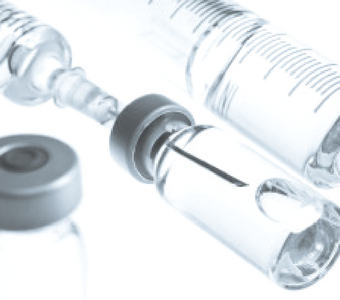Many biotechnology companies choose to focus on specific niches of the market that they deem to be the most lucrative. Gilead Sciences (NASDAQ:GILD) is making a tremendous push into the Hepatitis C market, and Biogen Idec (NASDAQ:BIIB) is the leading player in the MS market. Alexion Pharmaceuticals (NASDAQ:ALXN), the company that I would like to highlight today, has chosen to play in an entirely different, but potentially much more lucrative market: ultra-rare diseases. And with its shares having fallen from an all-time high of almost $120 in October to $96.02 as of November 30, 2012, the time may be right for investors not yet in the stock to consider initiating positions. Unless otherwise noted, financial statistics and managerial commentary used in this article will be sourced from one of 3 places: Alexion’s Q3 2012 earnings release, its Q3 2012 conference call, or its latest 10-Q filing.
Overview & The Promise of the Ultra-Rare Disease Market
Alexion Pharmaceuticals, based in Cheshire, Connecticut, currently has just one drug on the market, Soliris. But, Soliris has the unique privilege of holding the record for being the world’s most expensive drug, costing $409,500 each year. Soliris treats some of the world’s rarest diseases, including PNH, or paroxysymal nocturnal hemoglobinuria, and aHUS, or atypical hemolytic uremic syndrome. These diseases, with global patient populations numbering only in the thousands, are often fatal and untreatable without Soliris. Since going public in 1996, Alexion has returned well over 8,000% to investors, and in the long-term, further gains are likely, due to the unique advantages of Alexion’s focus, as well as its increasingly diverse pipeline.
A focus on ultra-rare diseases and orphan drugs gives Alexion a structural advantage during the FDA approval process. As part of its review of new drug applications, the FDA not only reviews the safety and efficacy data of a drug, but also its position relative to existing treatments on the market. The FDA debates whether or not a new treatment provides a clear medical benefit to patients (it need not be superior for every single patient, however) relative to existing treatments. But when it comes to the diseases that Alexion targets, there are no alternative treatments. Relative to other biotechnology companies, Alexion usually has n lower hurdle to clear with the FDA. Even if its treatments do not demonstrate dramatic efficacy, they are better than nothing when it comes to treating ultra-rare diseases.
Q3 2012 Review & Q4 2012 Commentary
Alexion posted pro forma EPS of $0.60 on revenues of $294.136 million in the third quarter, beating EPS estimates by 13 cents and meeting revenue estimates. The company also raised its full-year 2012 forecast, and is now calling for EPS of $1.99-$2.04 (up from a previous range of $1.78-$1.88 in EPS. Revenue forecasts were raised to $1.12-$1.13 billion, up from a previous range of $1.11-$1.125 billion. Alexion cited the continued growth of Soliris in treating PNH and aHUS, as well as a continued focus on cost controls as being the factors that are driving its 2012 guidance higher. In the third quarter, Alexion’s revenues grew by 44.15%. Its EPS, however, grew by 62.16%, as the company’s pro forma profit margin expanded to 41.03% from 35.58% a year ago.
Alexion’s third quarter was one of geographic expansion, with new Soliris patients added not only in the United States, but in Western Europe and Japan, as Alexion’s efforts to expand awareness are paying off. On the company’s conference call, David Halal, the company’s CCO, stated, “We continue to observe the ongoing positive impact on patient care of our disease awareness and diagnostic initiatives. In Q3, as in previous quarters, a majority of PNH patients, newly starting on Soliris, were also newly diagnosed. This demonstrates that broad education about PNH, as well as PNH diagnostics, positively influences the entire cycle of care, from a patient newly diagnosed with PNH to a patient newly starting on appropriate treatment.” Alexion is also working to expand awareness of PNH in other emerging markets, such as Turkey and Brazil. On the aHUS front, Alexion is working to bring Soliris to aHUS patients outside the United States. A small number of patients in Germany began using Soliris to treat aHUS, and Alexion is working with regulators in both France and Italy to launch Soliris throughout those countries.
On its conference call, Alexion noted that in Q4, there will be a significant sequential ramp in SG&A expenses, which are slated to increase by around $20 million, up from the $80.3 million in SG&A expenses for Q3. CFO Vikas Sinha stated that this is due to both seasonal effects stemming from increased medical conference attendance, as well as a growing sales force due to the company’s geographic expansion. Alexion also reduced its full-year R&D guidance, which, on the surface, would seem to be a negative. Biotechnology companies live and die depending on their pipelines, and if a company is cutting R&D spending, doesn’t that imply that it is having issues with its pipline? Merrill Lynch raised this issue on Alexion’s Q3 call, but CFO Vikas Sinha responded that it is merely a shift of R&D spending into 2013 relating to asfotase alpha (more on that later), which is expected to launch in 2014. Alexion is aligning production with the expected launch date so that it can avoid excess costs.
Pipeline Overview & Upcoming Catalysts
While Alexion has just one drug to sell at this point in time, that does not mean that this will be the case in the years to come. Alexion is reinvesting the profits from Soliris into expanding its pipeline, which now includes eight different targeted indications, and Soliris accounts for just four of them. Like Soliris, Alexion’s pipeline is focused on treating ultra-rare diseases, including hypophosphatasia and molybdenum cofactor deficiency.
Alexion expects to file for approval of asfotase alpha, its treatment for hypophosphatasia in children, by 2014. Alexion gained control of this compound with the takeover of Enobia pharmaceuticals, acquired for $610 million in December 2011. Hypophosphatasia, also known as HPP, is an ultra-rare, and life threatening disease in which can cause skeletal defects and muscle weakness in patients. Alexion is currently conducting a natural history study of asfotase alfa in infants with HPP. While approval is not guaranteed (the drug has orphan status in both the United States and European Union), Alexion has a good chance of securing approval. There are no existing treatments for HPP, and as long as Alexion demonstrates good safety data, efficacy data need not be spectacular. Soliris is currently in Phase II trials for the treatment of Shiga-toxin-producing E. coli hemolytic uremic syndrome (STEC-HUS), and a launch is possible in 2014, pending further data from the company’s nephrology researchers (further data is likely to be released in 2013).
Alexion has also presented preclinical data regarding the use of Soliris in treating neuromyelitis optica (NMO), also known as Devic’s Syndrome. NMO is an inflammatory disorder in which a person’s nervous system attacks their optic nerves and spinal cord. As Stephen Squinto, Alexion’s co-founder and head of research & development stated on the company’s Q3 call, “Within 5 years of disease onset, 50% of relapsing NMO patients have been reported to sustain permanent, severe disability, including blindness and paralysis. In one report, 30% of patients with NMO died within 5 years of disease onset.” Alexion reported solid Phase II data regarding Soliris in NMO, with 86% of patients free of attacks after 12 months of treatment (12 out of 14 enrolled patients). It should be noted that it has not been definitively proven that the 2 patients who did experience relapses experienced true NMO relapses. The relapses of these 2 patients did not conform to the medical definition of a relapse. Alexion expects that it will begin a larger study of Soliris in NMO in the middle of 2013. Soliris is also being investigated in the treatment of myasthenia gravis, a rare (there are 3-30 cases per million diagnosed per year) neuromuscular disorder that leads to muscle weakness and fatigue. Alexion is planning on conducting a Phase II study of Soliris in myasthenia gravis within the first 6 months of 2013.
Financials, Estimates, and Valuations
Alexion has a strong balance sheet, ending Q3 2012 with $744.526 million in net cash. It should be noted that on November 8, Alexion’s board of directors approved a $400 million stock buyback. But because the program has no set expiration date, it is unlikely that Alexion will deplete its cash balances all at once to repurchase shares. Alexion is a fairly active acquirer, and is always on the lookout for potential deals involving companies with drug candidates that target ultra-rare diseases.
Based on current Reuters consensus data, Alexion is expected to post 2012 EPS of $2.05 (the company’s own forecast calls for EPS of $2.01 at the midpoint). Utilizing Alexion’s own forecasted EPS, the company’s shares currently trade at a P/E ratio of 47.77x estimated 2012 EPS. But, with EPS set to grow by 37.81% in 2013 to $2.77 (giving Alexion a P/E ratio of 34.66x 2013 earnings), and revenues set to grow by 36.37% (to $1.5 billion), Alexion has the growth to match its valuation.
The company has no real competition, and it’s drugs almost always have a lower hurdle to climb when reviewed by the FDA, CHMP, or other regulatory bodies. For the diseases Alexion targets, there are rarely (if ever) alternative treatments, and as the company’s cash balances rise, it will have more and more financial firepower to invest in its pipeline and make new acquisitions, thereby reducing its reliance on Soliris and expanding its total addressable market.
Conclusions
In my view, Alexion Pharmaceuticals’ best days are ahead of it. Soliris’ reach is expanding across the globe as awareness expands of the diseases that it targets. And Alexion’s pipeline holds several promising compounds, which have the added benefit of easier FDA approval procedures relative to peers. Alexion is one of the few companies in the biotechnology sector (and perhaps all sectors), that operates virtually free of competition. Alexion’s recent pullback offers investors that do not yet own the shares an attractive entry point into a stock that is poised to do well in 2013 and the years beyond.





